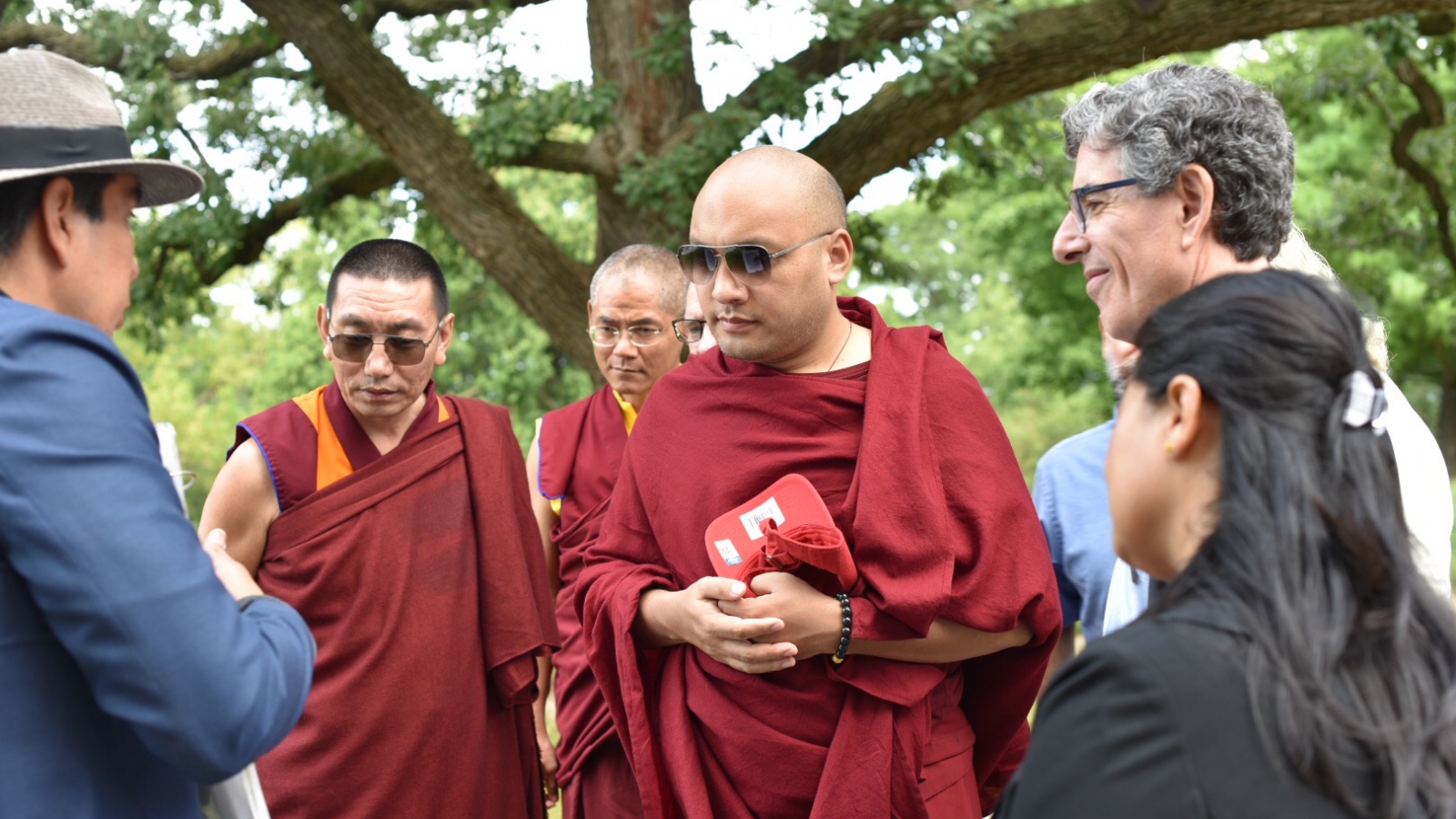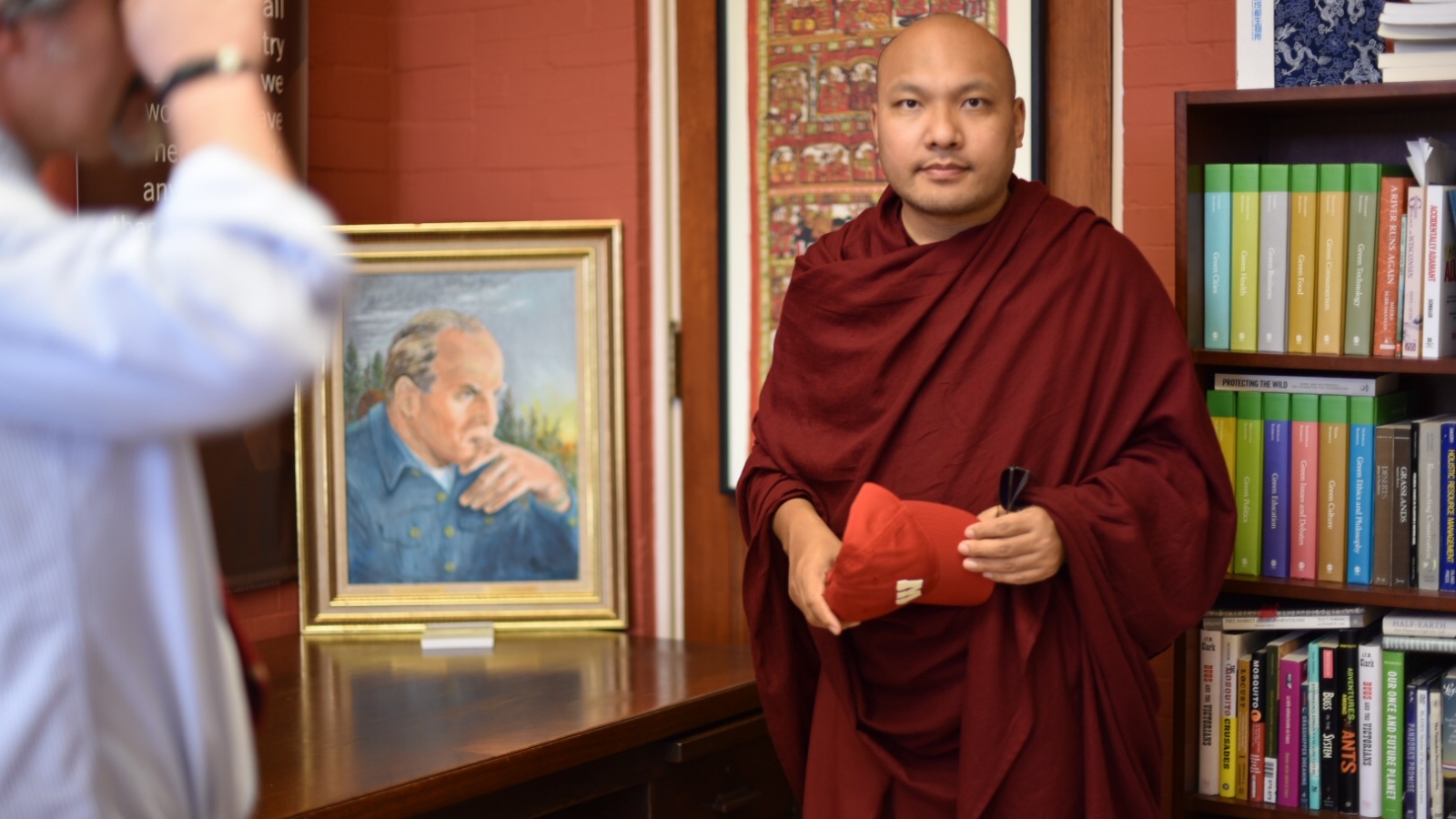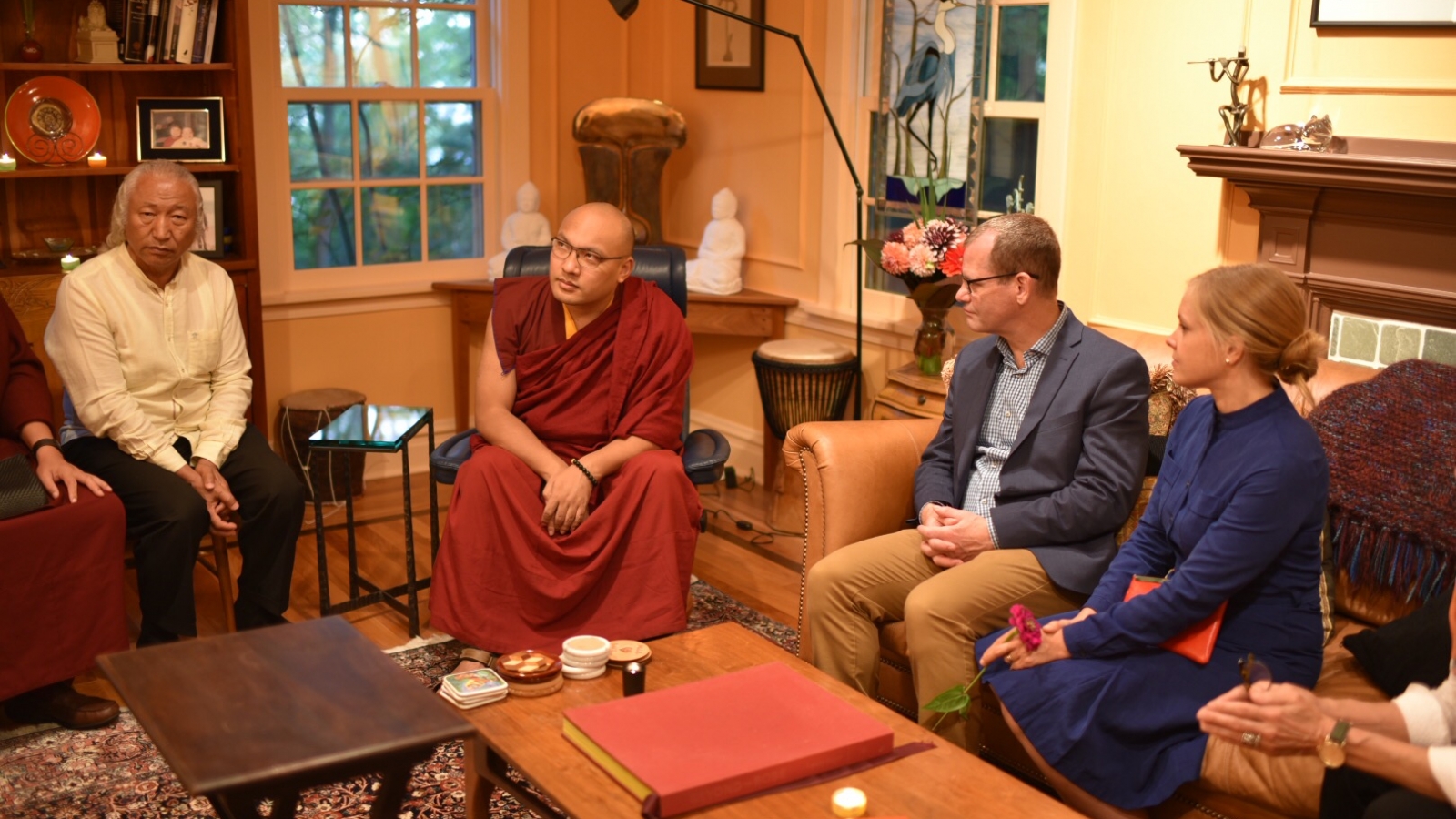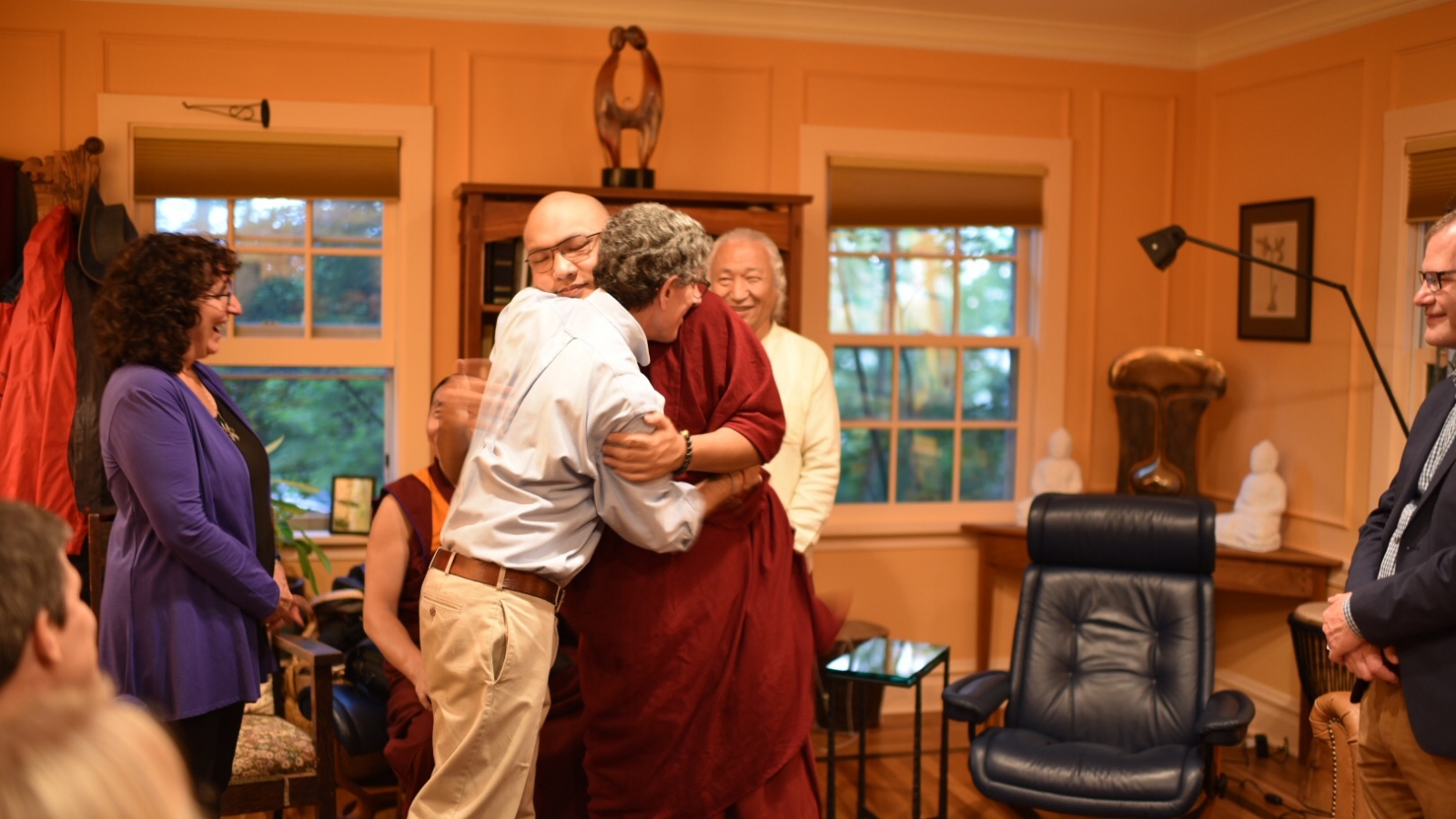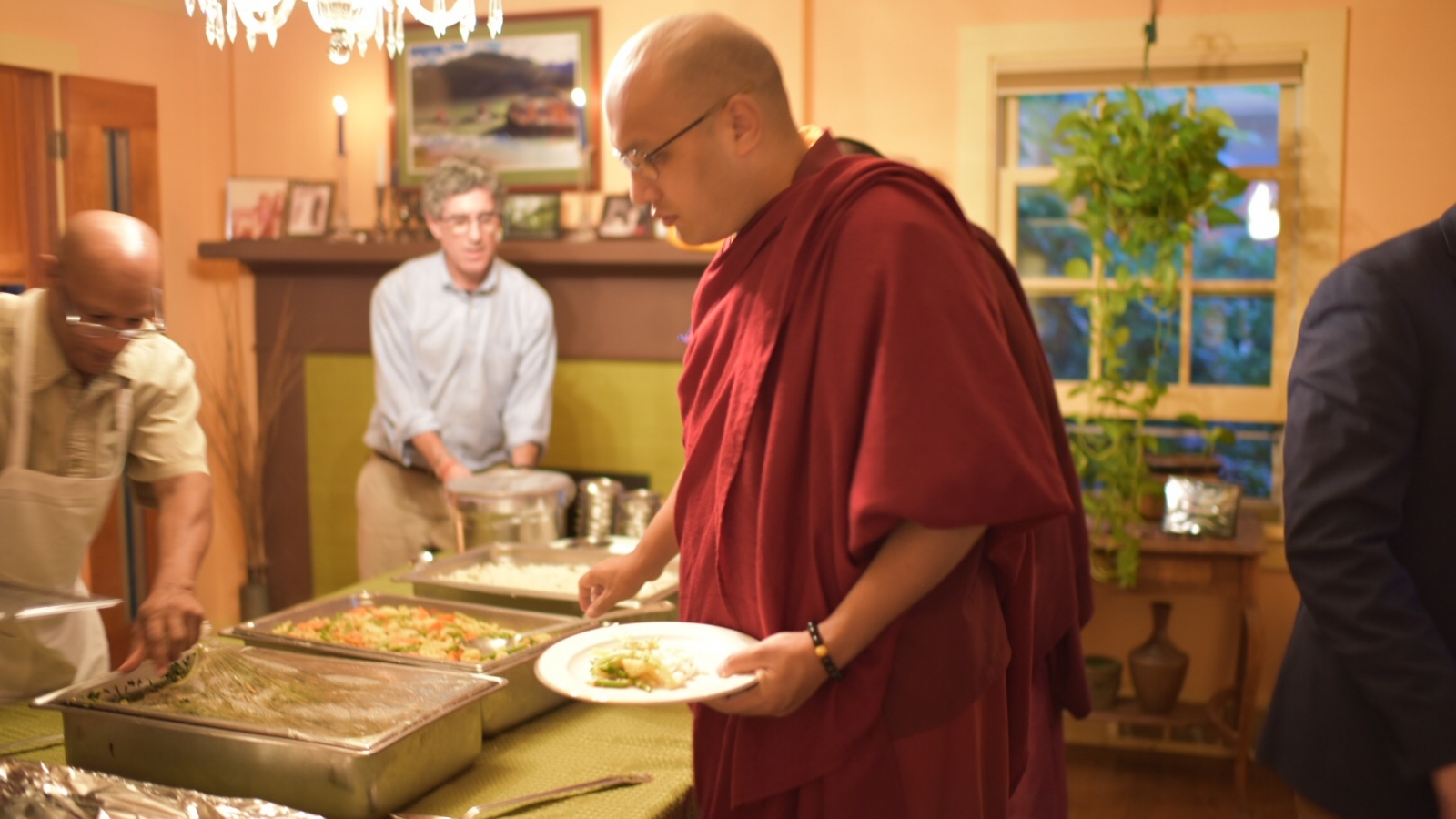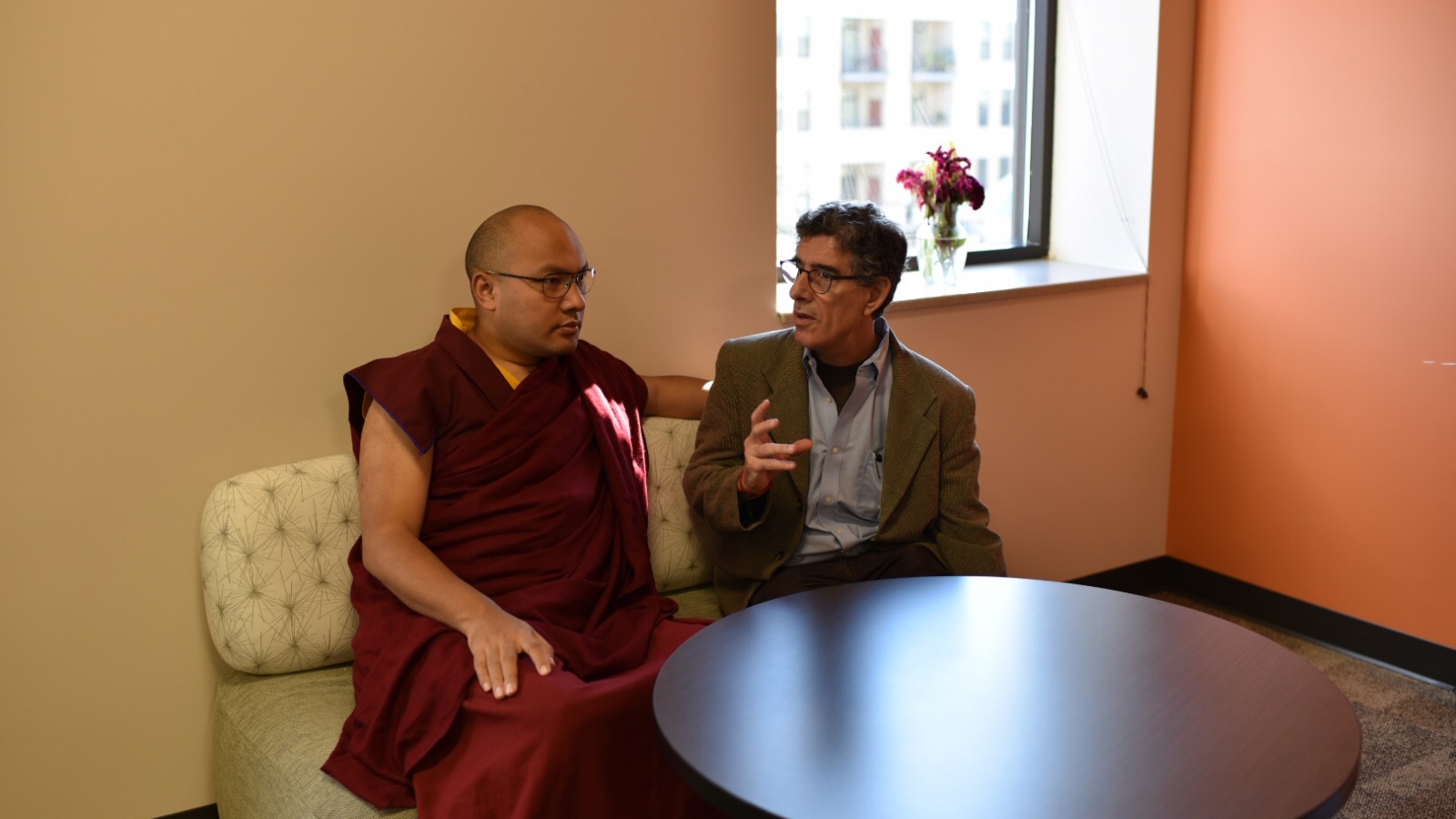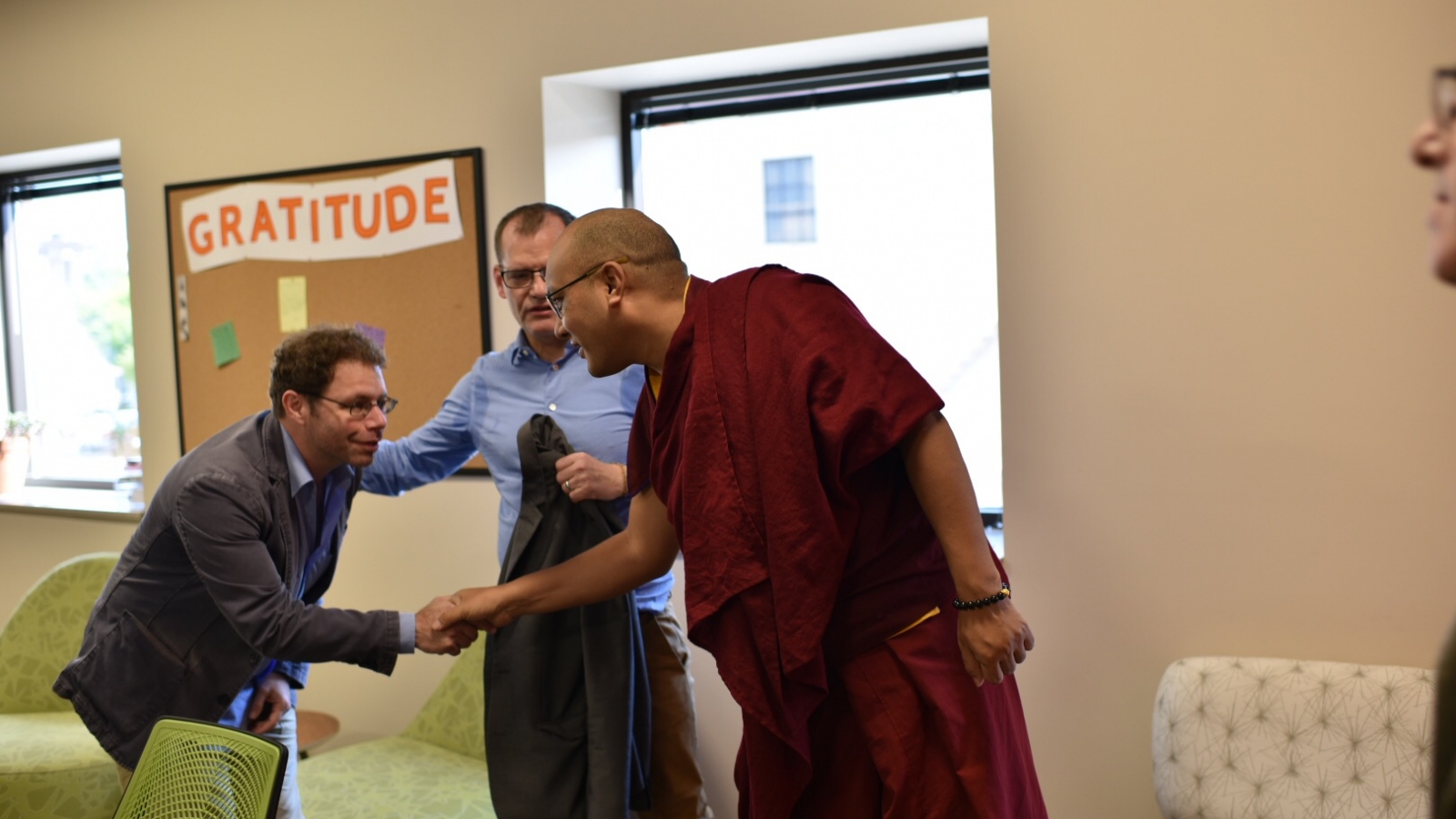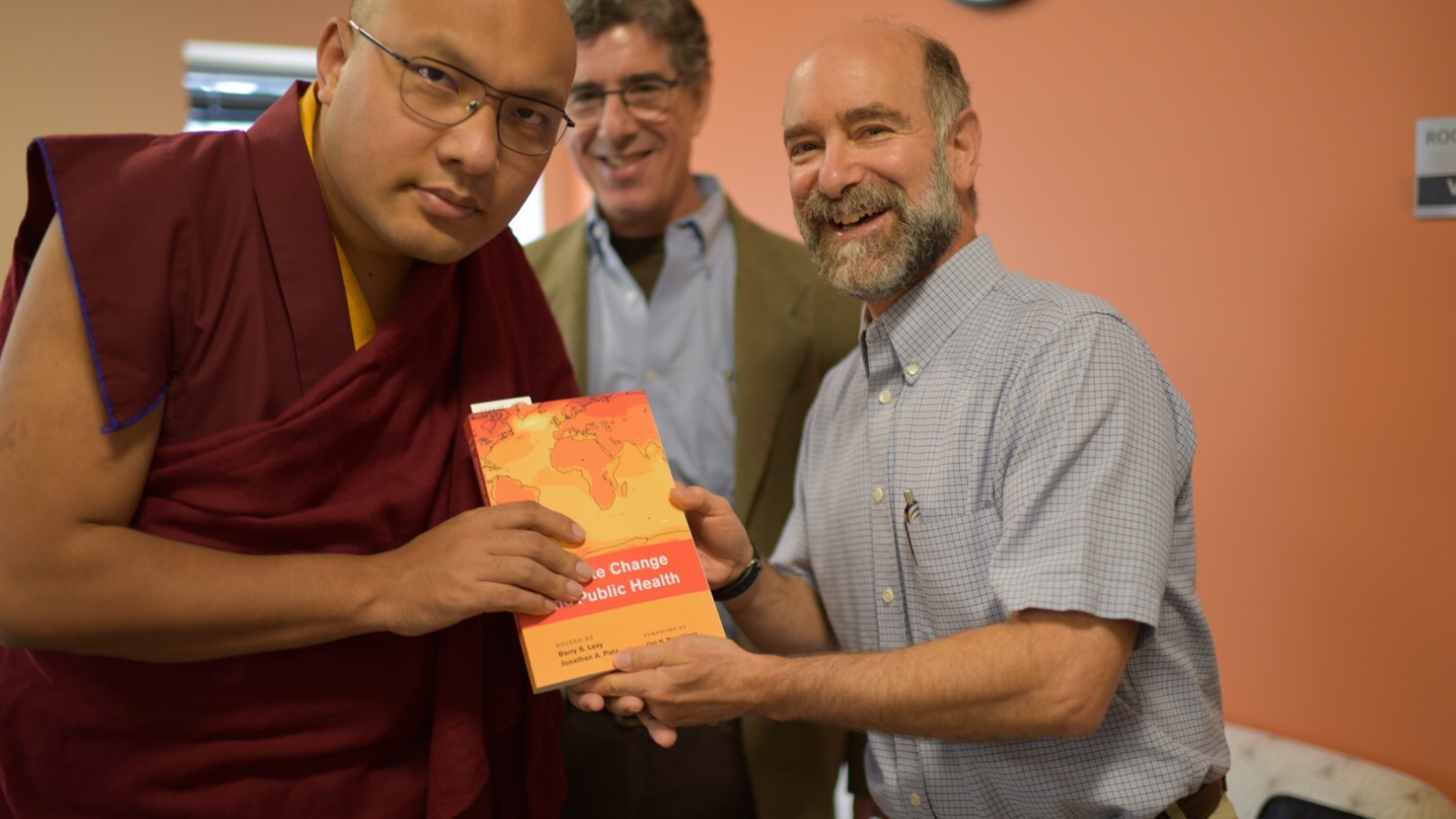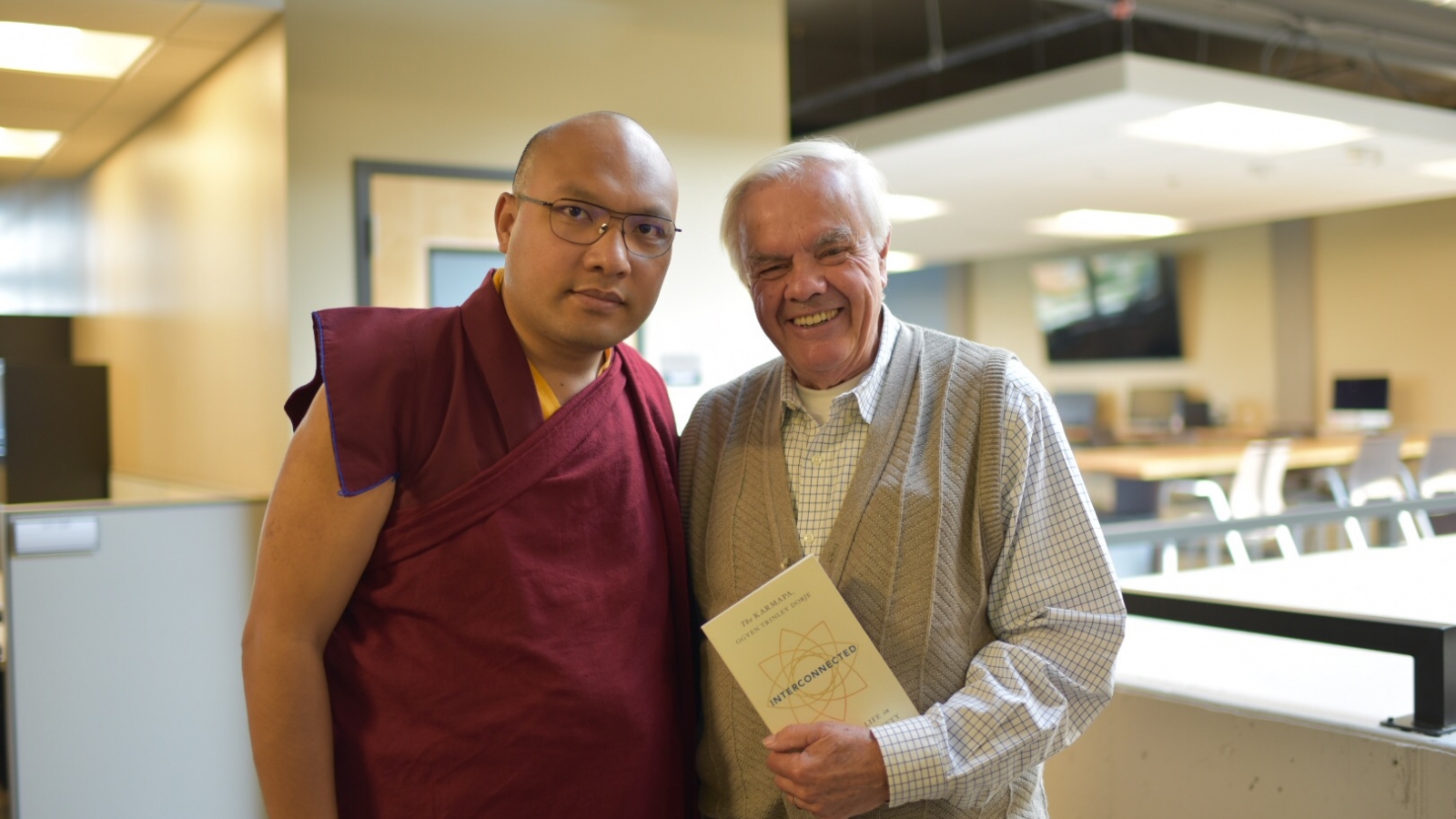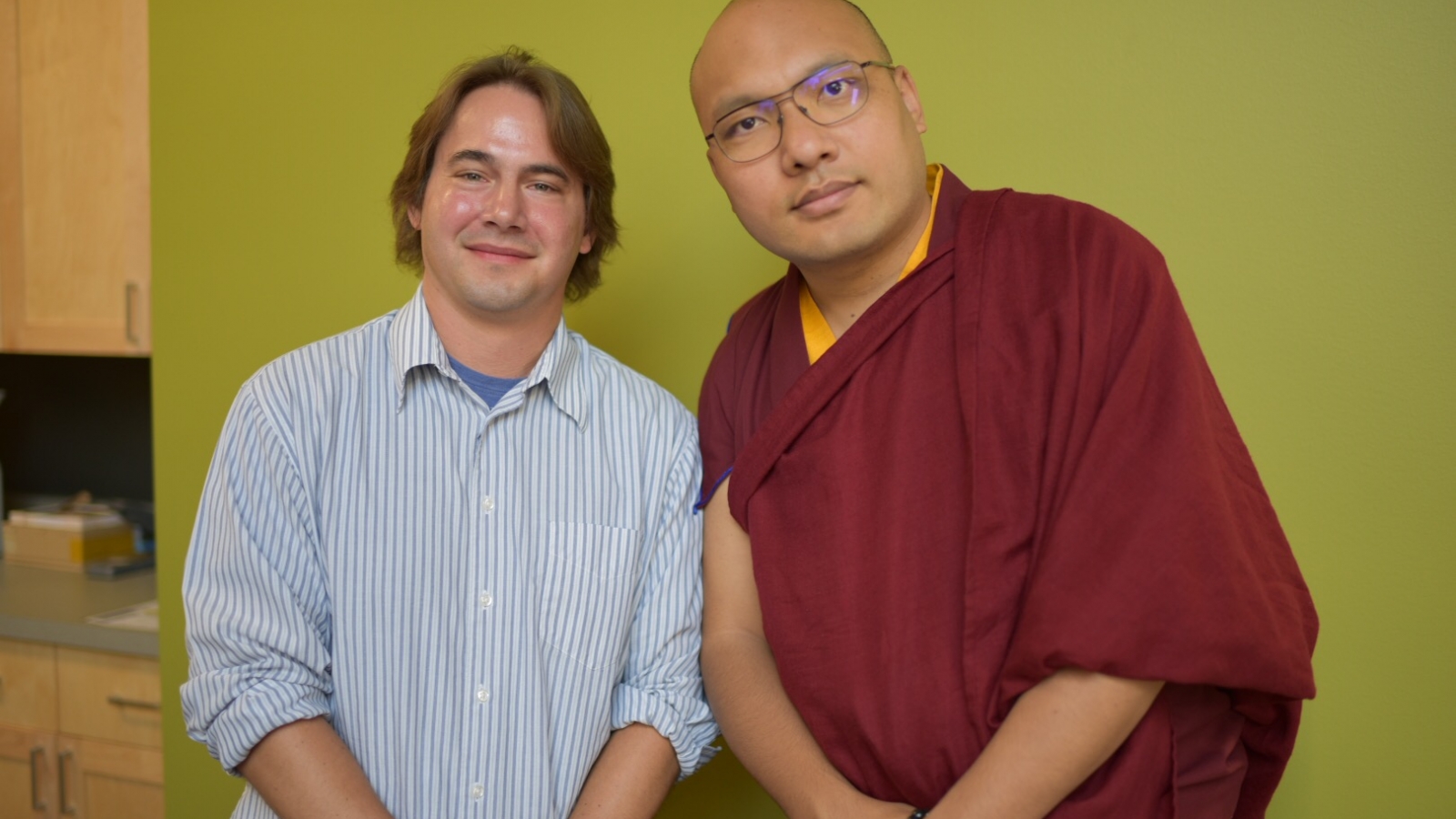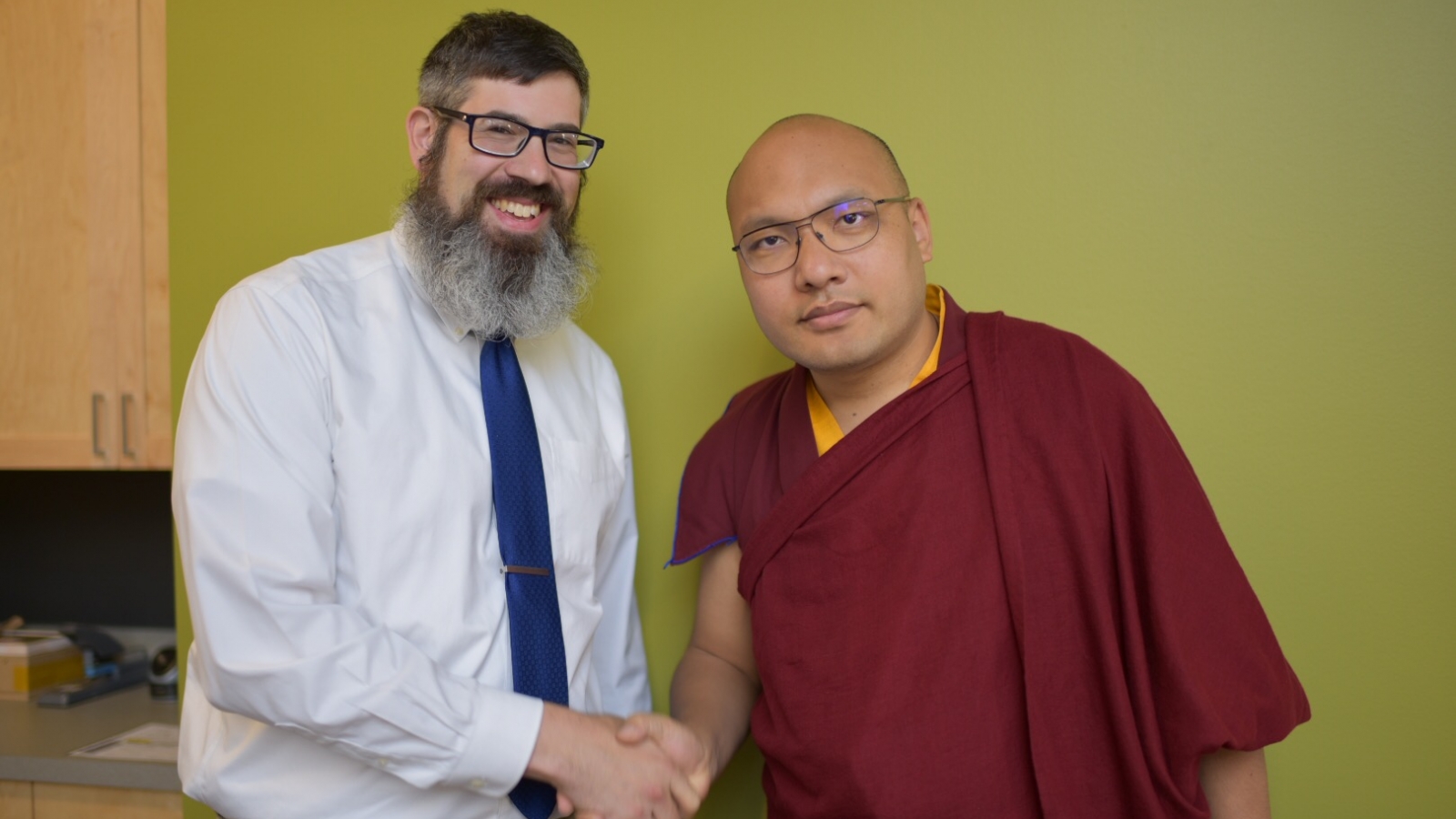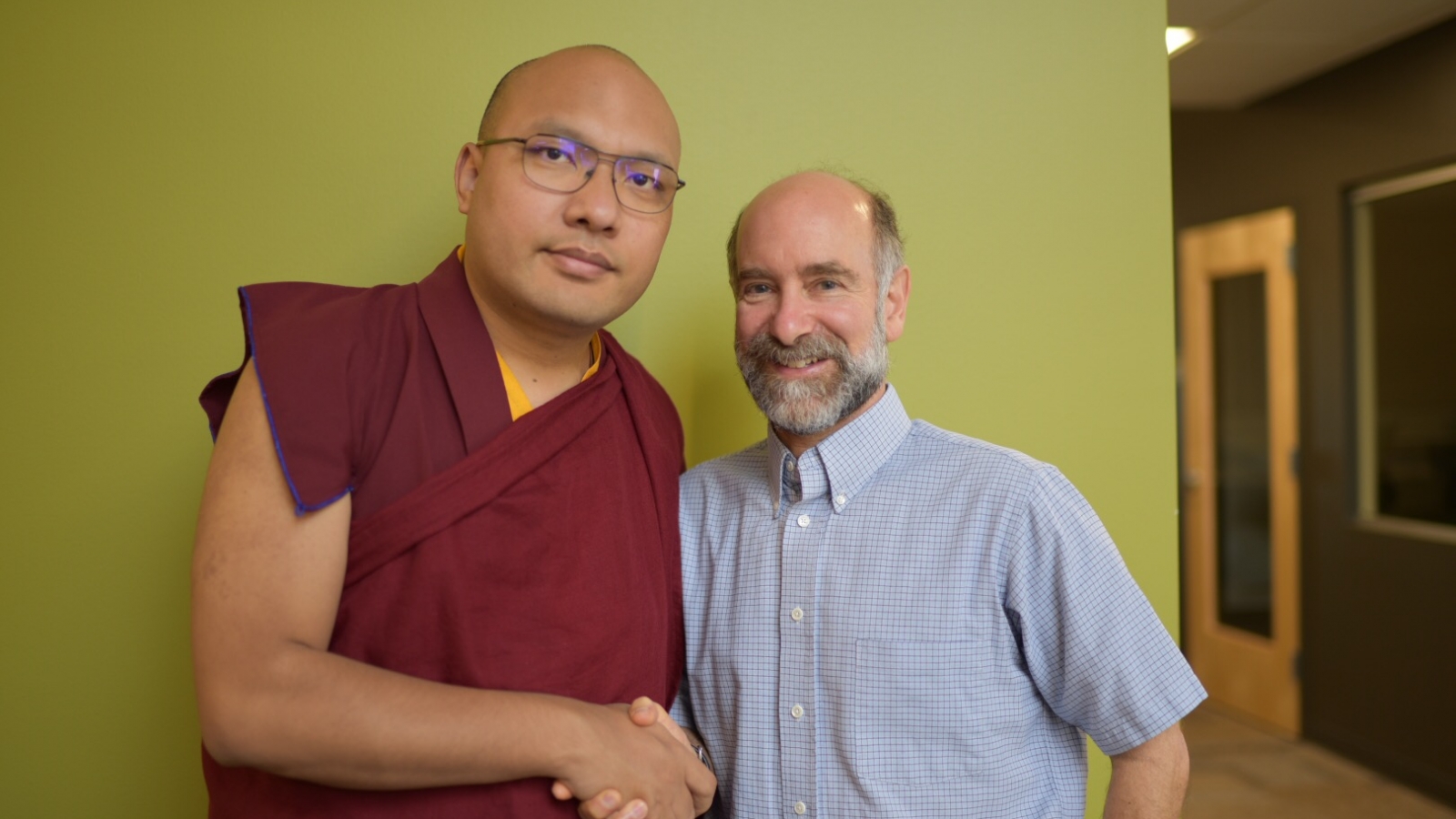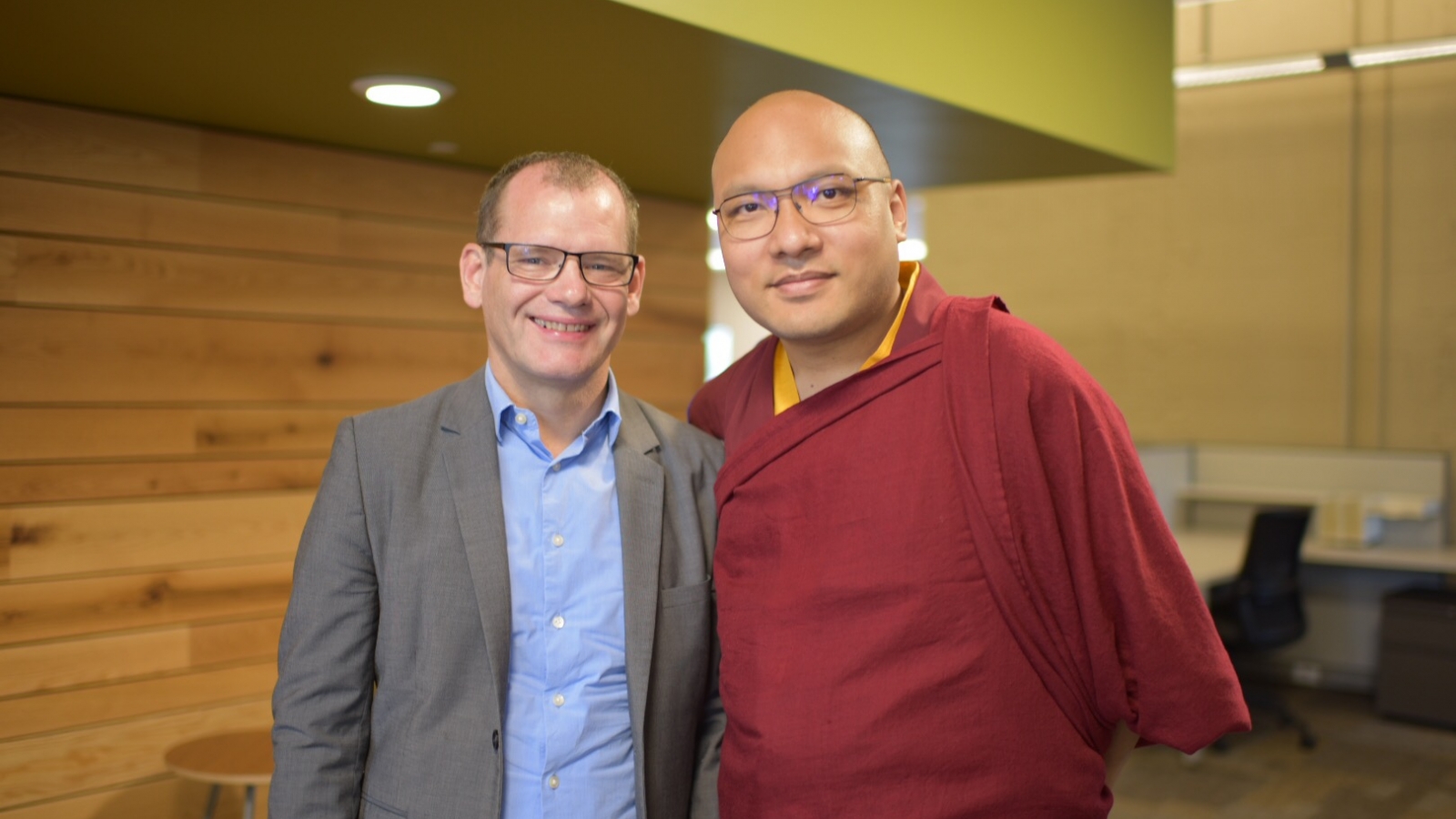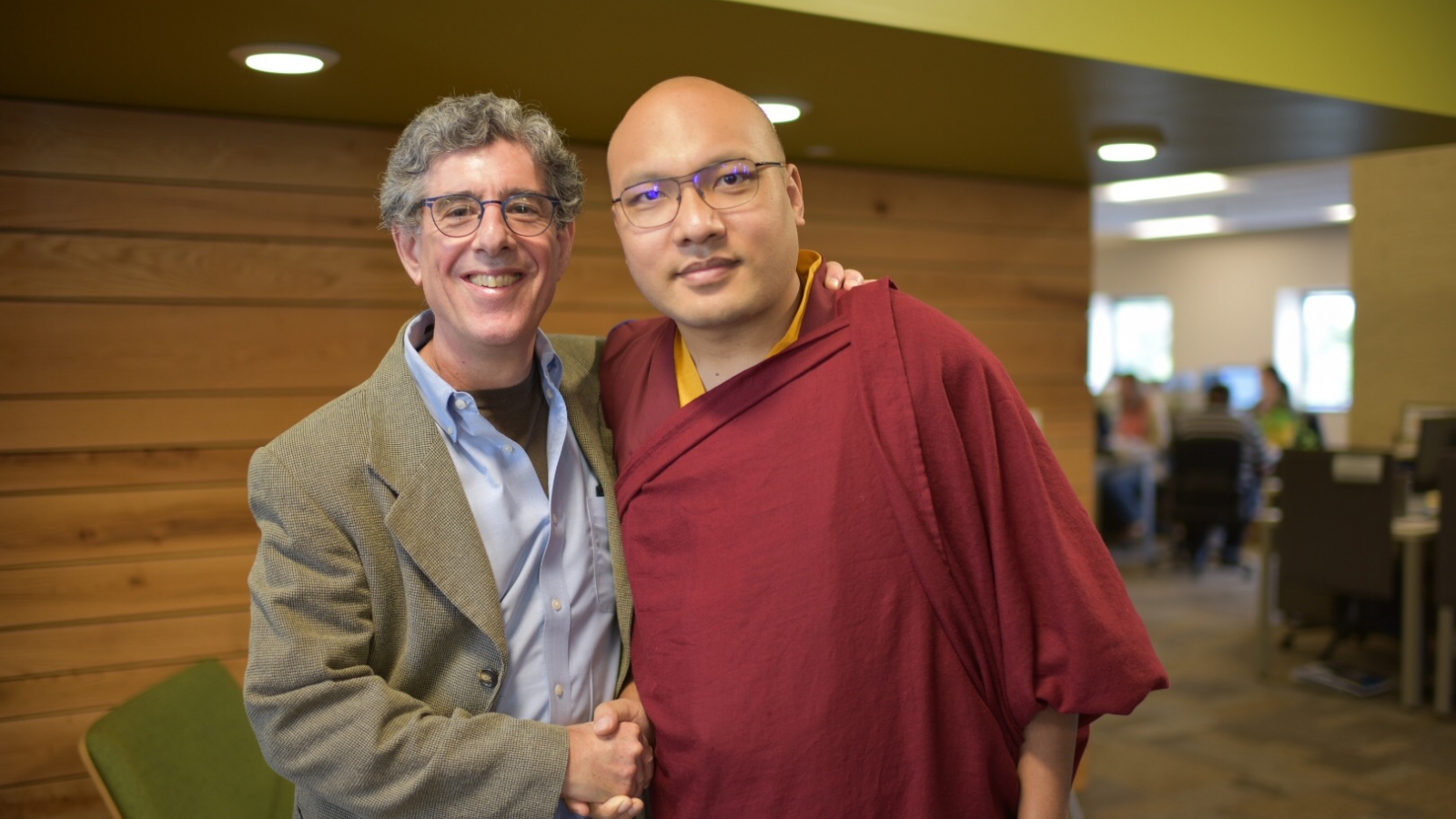His Holiness the 17th Karmapa visited the University of Wisconsin–Madison this past week. He was hosted by the Center for Healthy Minds, one of the top research institutions focusing on affective and contemplative neuroscience around the world. His Holiness met with the Provost of the University, as well as heads and representatives of different departments and centers on campus over a two-day period. His purpose for meeting with the Center for Healthy Minds, the Center for the Humanities, the Center for Religion and Global Citizenry, the Division of Continuing Studies, the Global Health Institute, the Nelson Institute for Environmental Studies, and the Religious Studies Program was chiefly to discuss how religious leaders could more effectively work with scientists, academics and global experts on addressing environmental and social issues.
In a meeting with Richard Davidson, the founder and director of the Center for Healthy Minds; Jonathan Patz, the director of the Global Health Institute; and Paul Robbins, the director of the Nelson Institute of Environmental Studies, His Holiness shared his opinion that scientific knowledge is not sufficient in inspiring people to change their behavior. He said “science needs religious leaders to help convince people that environmental protection is an urgent moral issue and not only an economic or political one. Without science, people lack the knowledge on how to solve environmental or social problems. But if you can add religious support to scientific expertise, you are able to generate greater courage and commitment among people to address these issues. For this reason, science and religion must find ways to work together.”
In between meetings, His Holiness toured the campus and visited the desk of Gaylord Nelson, previous governor of Wisconsin and the founder of Earth Day. His Holiness also made special effort to visit and pay his respects at the Native American sacred burial grounds on the UW-Madison campus.
As part of the outcome of this visit, His Holiness agreed to attend future events at the university where faith leaders from different traditions are invited to engage scientists, academics, psychologists, economists, policy makers and practitioners on addressing global environmental and social issues.


